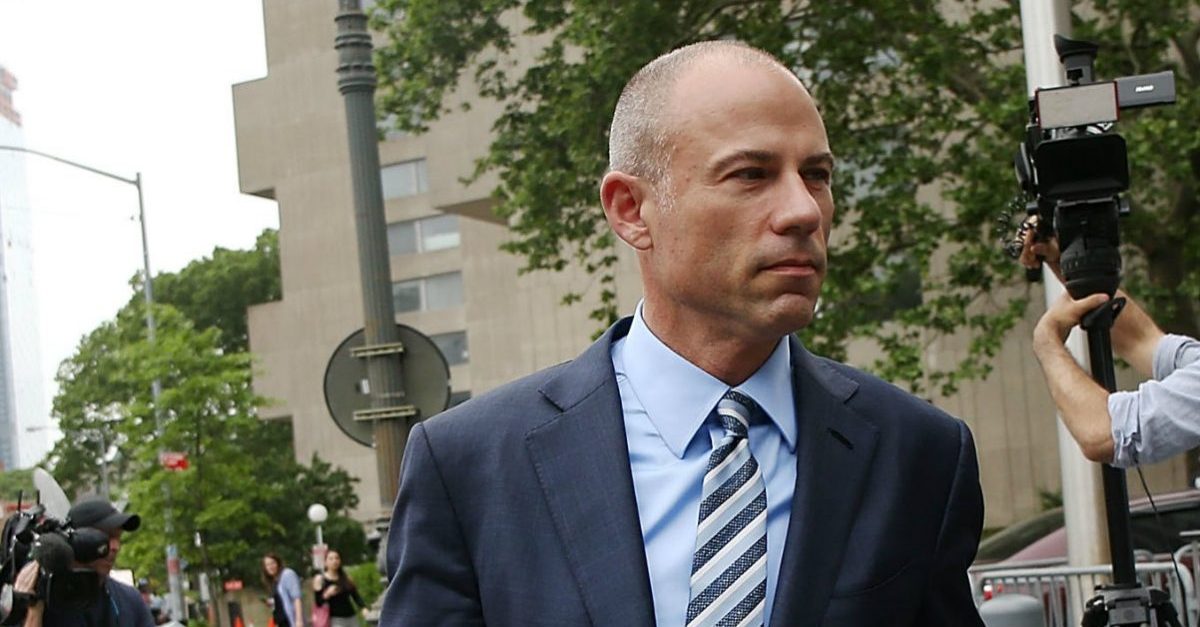
Indicted celebrity attorney Michael Avenatti looks to be in dire shape if recent allegations regarding his Google search history are true.
According to a recent motion letter filed in the Southern District of New York (SDNY), Avenatti cast about for information on “Nike put options” and “insider trading” on March 10, 2019–mere weeks before he was indicted on white collar crimes related to an alleged extortion plot that prosecutors say was aimed at the Nike apparel company.
The SDNY says that Avenatti contacted Nike representatives and demanded payments in excess of $23 million in return for a promise that he would cancel a planned press conference calling out the company over allegedly untoward practices viz. college athletes. The athletics apparel giant is widely believed to have improperly funneled money to several college basketball players in violation of NCAA rules. Avenatti seems to have come by such knowledge through his own representation of youth basketball coach Gary Franklin.
“This evidence of Mr. Avenatti’s internet searches….is irrelevant and the unfair prejudice from its introduction would substantially outweigh any probative value,” Avenatti’s attorney Scott A. Srebnick argued in a letter motion filed last week.
The defense’s motion to exclude continued:
The obvious implication is that Mr. Avenatti illegally traded in Nike stock based upon information obtained from Coach Franklin. That did not happen, the government has no evidence that it did, and Mr. Avenatti is not charged with insider trading. The government also never gave notice…that it would seek to offer evidence that Mr. Avenatti researched “insider trading.”
Srebnick claimed that such lack of notice is fatal to the government’s efforts in this regard due to an alleged violation of the federal rules of criminal procedure. Avenatti’s attorney may have a case here. Under the rules, notice is a mandatory aspect of the introduction of character evidence.
Only time will tell, however, if U.S. District Judge Paul Gardephe buys the defense or the prosecution’s argument as to whether the alleged search history is more informative than prejudicial and whether or not there was ample notice given.
The defense also alleged a fair amount of hypocrisy on the SDNY’s part in the motion to exclude.
“Ironically, the government has urged that the court preclude the defense from introducing certain search terms and results…in its case based on [the federal rules]…presumably, [the government] would apply the same reasoning to these search terms,” Srebnick noted.
Despite the defense’s best attempts, however, the latest bits of damaging information don’t appear to augur well for the man who formerly represented Stormy Daniels.
“What Michael did was, he actually went to the Nike lawyers and said, ‘Listen, I need this money and you better pay it’ and he used the quarterly calling–the threat that he was going to announced what wrongdoing Nike [had],” noted defense attorney Gary Gerstenfield during a recent appearance on Fox Business’s Evening Edit.
“Which, for the purposes of this conversation isn’t important–but probably Nike does have some liability there,” Gerstenfield continued. “So had this been approached in a normal course…draw up a complaint, maybe send a copy of the complaint, don’t file it, and create a backbone of what your complaint is, in a normal process, that would have been absolutely legal.”
“So, you’re saying this was a shakedown of a company, essentially?” the Fox Business host asked.
To which Gerstenfield replied: “Absolutely.”
Avenatti, for his part, has previously expressed defiance at the government’s case against him and vowed to emerge from the legal battle victorious. He told Law&Crime earlier this year that he “will be fully exonerated” and insisted that he “did absolutely nothing wrong.”
Read Avenatti’s full motion to exclude below:
Avenatti Motion to Exclude by Law&Crime on Scribd
[image via Spencer Platt/Getty Images]